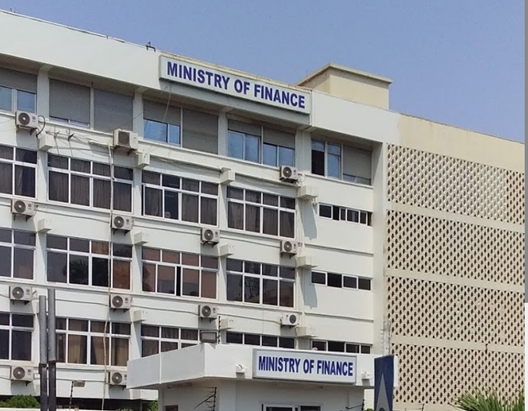Ghana Faces GH₵4.9B in Irregularities, with Finance Ministry in the Lead, Says Imani
While this figure represents a reduction from the GH₵ 13.9 billion reported between 2015 and 2020, it underscores persistent fiscal indiscipline within public institutions.

Ghana faces GH₵ 4.9 billion in financial irregularities from 2021 to 2023, with the Ministry of Finance leading as the most fiscally reckless institution during this period, according to the IMANI-OXFAM Fiscal Recklessness Index (2021-2023).
Despite ongoing reforms in Ghana’s public financial management (PFM) system, financial irregularities continue to pose a significant challenge. From 2021 to 2023, the total financial irregularities amounted to GH₵ 4.9 billion, equating to 2.36% of the nation’s GDP in 2023.
- Advertisement -
While this figure represents a reduction from the GH₵ 13.9 billion reported between 2015 and 2020, it underscores persistent fiscal indiscipline within public institutions.
- Advertisement -
Surprisingly, the Ministry of Finance emerged as the most fiscally reckless institution, responsible for approximately 90% of the financial infractions during the 2021-2023 review period. Other notable offenders include the Ministry of Communication, the Ministry of Roads and Highways, the Ministry of Health, and the Ministry of Food and Agriculture.
In addition to the GH₵ 4.9 billion in financial irregularities identified between 2021 and 2023, tax-related infractions emerged as the most significant issue, constituting 90% of total irregularities during this period. This represents a sharp rise from 65% in the previous assessment.
The report attributed this increase to weak tax compliance enforcement by the Ghana Revenue Authority (GRA), which has led to budget shortfalls and forced the government to resort to borrowing to meet its financial obligations.
- Advertisement -
Furthermore, the lack of robust internal audit functions within Ministries, Departments, and Agencies (MDAs) was highlighted as a major contributor to recurring financial irregularities. Issues such as unsupported payments, fraudulent withdrawals, and procurement violations could have been mitigated with stronger internal audit systems. The report underscores the need for better integration of internal audits to prevent such infractions.
Compounding these issues is the weak enforcement of sanctions for financial misconduct, which has fostered a culture of impunity within public institutions.
Despite clear provisions within Ghana’s PFM laws, these sanctions are rarely enforced. For instance, the Ministry of Finance repeatedly violated procurement laws but faced no consequences. This lack of accountability perpetuates fiscal recklessness across several institutions.
The impact of financial irregularities is particularly concerning within MDAs responsible for key social services, such as the Livelihood Empowerment Against Poverty (LEAP) and the Ghana School Feeding Program (GSFP). These institutions were found to be moderately fiscally reckless, which directly affects their ability to provide essential services to vulnerable communities.
In response to these findings, the report recommends the establishment of an independent fiscal council to oversee government financial decisions, enhance tax enforcement through digitization, strengthen internal audit systems, and rigorously apply sanctions for financial infractions.
Source:thehighstreetjournal.com
- Advertisement -



